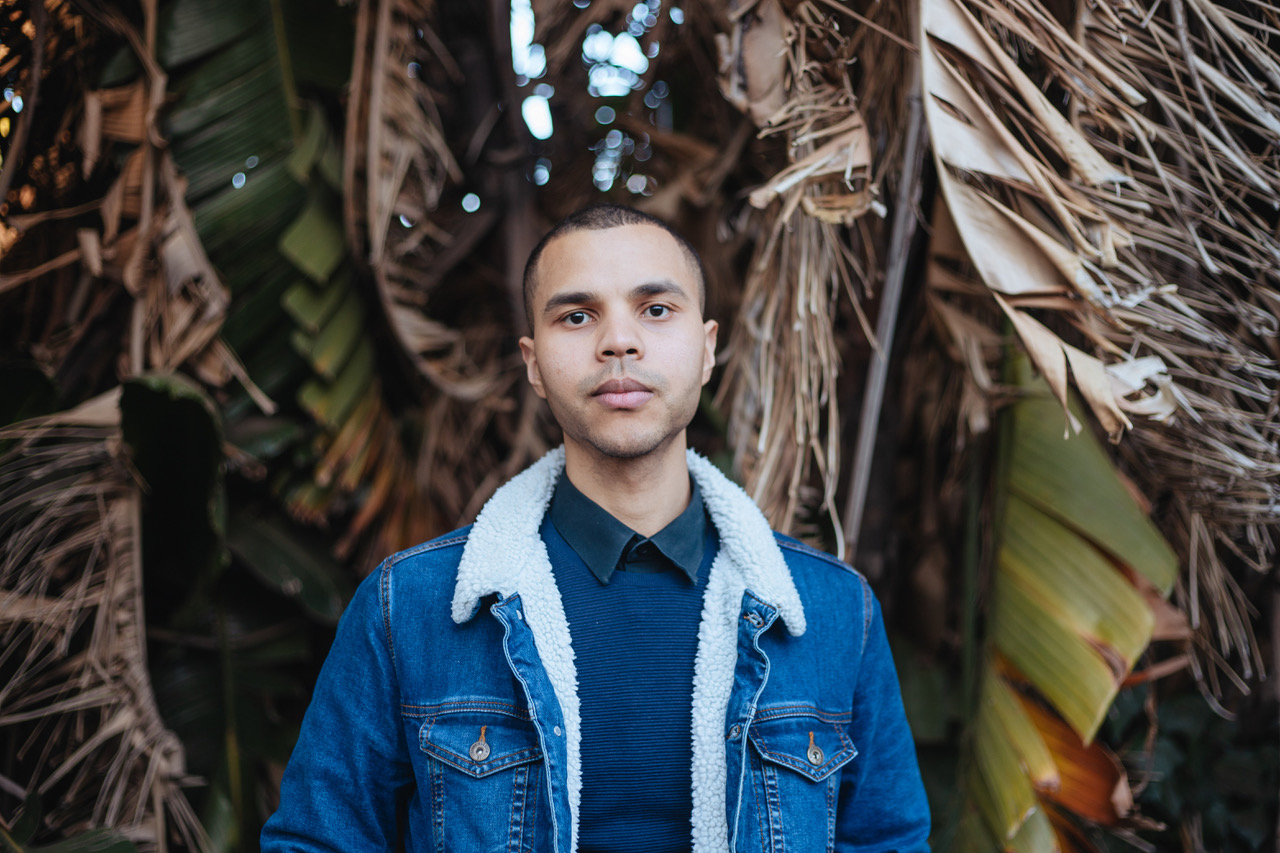Through music, Vuma Levin journeys into memory
Composer and guitarist Vuma Levin emerges from emotional solitude with a visceral and moving fourth album, Antique Spoons: Chapters on Love, Loss and the Politics of Memory.
Author:
11 March 2020

A searching look passes over guitarist and composer Vuma Levin’s face as he tries to summon his first memory. For a millisecond his usually upright posture, with shoulders back and down, jaw nearly perfectly parallel to the ground and spine perpendicular to both, slackens to give way to an innocent time, in a journey back to a more intuitive and emotional version of himself.
He might have been two years old, perhaps three or four, when his formerly politically exiled Jewish father and Swati mother moved to Johannesburg during the interregnum in South Africa. There were regular play sessions at a school he attended in the city’s central business district. During one of these, he recalls, “We had to blow air through a straw into a jar filled with coloured water and watch the bubbles explode. To me, this thing looked like a really tasty treat so I decided to drink it. It was horrible. I just remember thinking, ‘Oh, this is really disgusting.’”
Memory and the materials of history are threads that run parallel to, intersect and intertwine with South African contemporary jazz. Recently, trumpeter Mandla Mlangeni’s Tune Recreation Committee plays on the Truth and Reconciliation Committee and debunks its prevailing myths, Shabaka and the Ancestors’ music continually explores common spiritual connections to place from home and the diaspora, and Benjamin Jephta’s recent projects emotively investigate his own identity formed on the Cape Flats.
Levin’s latest work, Antique Spoons: Chapters on Love, Loss and the Politics of Memory, adds vital fibre to this pervasive thread. Given that he is 32 years old, his personal journey and particular approach to composition and performance make the texture he contributes to jazz’s exploration of memory unique.
A scientific approach
In high school at Sacred Heart College, a private Catholic school in Johannesburg’s leafy Observatory suburb, a young Levin dreamt of one day becoming a great physicist. It was partly his belief that he lacked the knack for science and an “unhealthy” need to assert his individuality that led him to a career in music.
“I was really not good at music when I first started,” he acknowledges. “It was an exercise in humility deciding to be a musician. I think it enriched me as a human being to struggle that way. There’s always a side of me that has to think that in choosing to do music, a part of me died, a dream of mine died, a dream from when I was a child wanting to be a physicist, wanting to be a historian, all these dreams; I had to accept that that side is gone. I had to mourn that death.”
Related article:
This late start to music, overworking and a natural inclination towards self-effacement brought about in him the deepest isolation of all: a feeling of being disconnected from the human race.
“At some point in my life for some reason I started to feel like my relationship to work was easier than my relationships to human beings. I still have it, a dysfunctional relationship that I established with work … at least for the past 12 years I prioritised work at the expense of all my personal relationships, whether [they] be familial, intimate, friendship. To some extent I still do that.”
This emotional detachment has not been without its rewards for his career, however. His first three albums, all released within roughly two years of each other, have earned him international accolades and the kind of regard that flagged him as a jazz icon in the making.
The first suite of songs from his first album, ZAR History Volume One, drew on Zimbabwean rhythmic ideas, Nguni/Sotho chord bow music and Nguni/Sotho choral music. Bringing together academic theory, music theory and musical product, its intelligent approach impressed audiences. But for Levin, there’s a certain poetry that is lost when working in that way. A quest to infuse poetry into his sound has led to his emergence from numbing solitude. Antique Spoons, a single suite of nine parts, is the product of an emotionally reconnected Levin.
From emotion to meaning
Both his hands emerge from beneath the surface of the grey table at the Artivist restaurant and performance space in Johannesburg, as he sets out his newfound, more emotional way of working.
“For me the only way that you can create is through the emotional responses that you have to your work,” he says. “I think we are feeling creatures and our decisions and our meaning in life is guided by our feelings on an intuitive level and then only retrospectively we find intellectual meaning in those feelings.”
Levin’s last three projects comprised two sets of sequential tracks that formed collections, or suites. Antique Spoons is a single suite of nine compositions that delicately walks the tightrope between teasing emotion from the listener and triteness. The title track’s familiarity in melody and rhythm could have easily descended into the bland tropes of what is considered “South African jazz”, if it weren’t for Levin’s flighty sound and expansive soloing on the track. He admits to having been a hesitant soloist partly because of his late start in music. On this record, though, Levin strings together often unexpected takes on melodies with his solos, as his voice grows in confidence.
Levin opens Antique Spoons with The End Alight by Magic Lantern, a hat-tip to his ongoing interest in traditional African music, most evident on his first album, ZAR History Volume One. The first sounds of this project are of umrhubhe (bow played with the mouth as echo chamber) being stroked, struck and overlaid to create textured chords that flute and guitar pick up on.
The rhythmic piano on Promenade is reminiscent of the way Bokani Dyer treats the instrument in various ways to alter its sound, as well as writing for it as a rhythmic instrument. Heard as parts of the same thread, these two songs create a marriage of jazz composition and traditional melody and instrumentation, with Levin using distortion as a tool as opposed to a spectre to avoid. With this, he creates an audible version of a worn black-and-white family portrait, in song.
Neuroscience has until recently believed that memories are formed when synapses, the connections between neurons, are strengthened. Scientists in the field have recently explored how “silent memories”, or the dormant memories which exist in human brains, can be reactivated when the correct proteins administered can bring them to the surface. Antique Spoons, an album by an artist reconnecting with his emotional self, comes with the hope that Levin’s work might further explore and amplify his silent memories.
Correction, 12 March 2020: Levin is 32, not 25 as previously stated.

